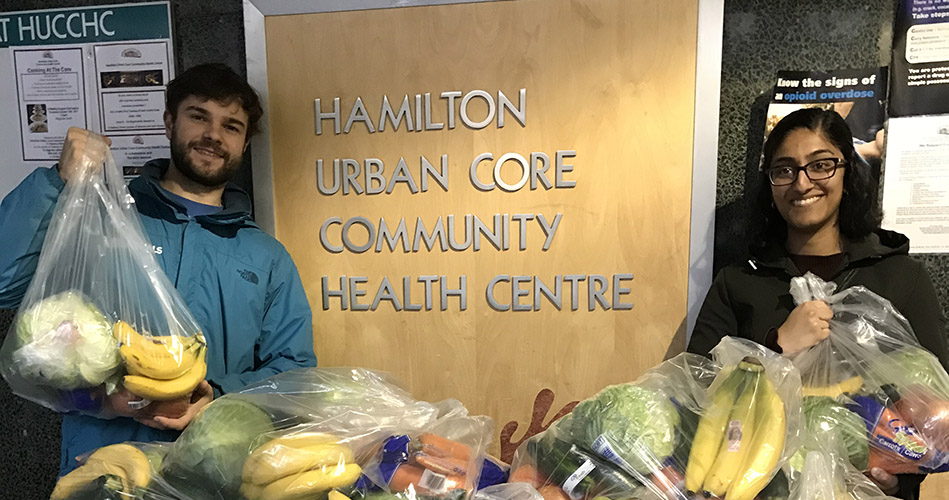McMaster medical students volunteer time and care to Hamilton community

For Matei Stoian and Nisha Kansal the field of medicine means providing medical assistance to marginalized communities and helping decrease the disparity that exists in health care.
These second year McMaster medical students, and active members of the MacHealth DNA group, recently helped organize a Family Portrait and Health Promotion day at the Hamilton Urban Core Community Health Centre (HUCCHC). The event was for families and clients of HUCCHC and involved a variety of health promotion activities, as well as family portrait sessions for those who would otherwise be unable to afford the experience.
MacHealth DNA is a student-led clinic, made up of McMaster medical students who have partnered with the Centre in downtown Hamilton to do clinical work, and help with programming and outreach. The partnership was inspired by the Hamilton Spectator’s “Code Red” series which highlighted the health disparity between different socioeconomic classes in Hamilton. MacHealth DNA is an organization supported by the MD Program of the Michael G. DeGroote School of Medicine.
“We’re proud to have our students applying their skills and learning within the city of Hamilton in a impactful way,” says Dr. Rob Whyte, Assistant Dean of Medicine, Undergraduate MD Program.
This is the second year MacHealth DNA has organized a Family Saturday event like this for HUCCHC clients downtown. During the event, 82 people were photographed and attendees were educated about food security and learned about nutrition on a budget. MacHealth DNA sent clients and families home with easy and healthy recipes and fresh produce from Ontario farms, donated from the Hamilton Good Food Box.
 HUCCHC staff, MacHealth DNA student volunteers, and community volunteers and interpreters.
HUCCHC staff, MacHealth DNA student volunteers, and community volunteers and interpreters.
“HUCCHC has a focus on social determinants of health,” says Stoian who explains that the experience of working at the Urban Core is a different one than that of a hospital.
“Their mission is built around spending time talking with patients in order to understand their life holistically – you don’t get that at other family practices in Hamilton.”
“The model of dealing with only one major issue and two minor issues isn’t one that works for populations at HUCCHC,” agreed Kansal. “The issues are more complex and the opportunity to spend 30-45 minutes with one patient is a unique experience.”
MacHealth DNA students feel strongly about dedicating time and skills off-campus because it’s a way they can give back to their community while completing their education and training.



